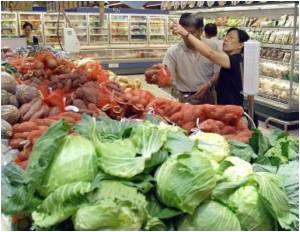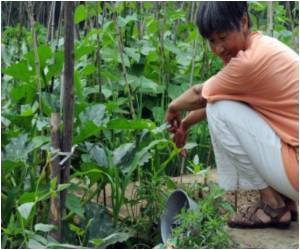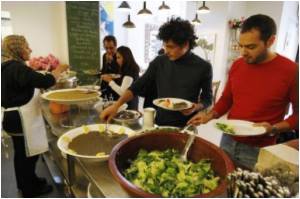According to a study venue's like farmer's markets and community-supported agriculture programs largely attract a privileged class of shoppers.

Farmer is discussing his research on Oct. 29 and Oct. 31 at the American Public Health Association's annual meeting in San Francisco.
The study focused on farmer's markets and CSAs in Indiana, which has more than 130 farmer's markets and more than 50 CSAs. In a CSA, individuals pay an upfront fee, usually $250 to $700, in exchange for a routine allotment of a farm's bounty. This can include fruits and vegetables, along with eggs, meat, dairy products and other goods.
Nationally, the popularity of both has grown exponentially, Farmer said, with farmer's markets seeing a 450 percent increase since 1994. More than 12,500 CSAs operate across the U.S. Generally speaking, local foods are more often produced using sustainable farming practices that eliminate or decrease the use of chemical applications that can be found in conventionally produced farm products.
"When you consider freshness as an important value for consumers, hands down local foods that are distributed directly from the farmer to the consumer get from the field to the table in a much shorter period of time," Farmer said. "Also, when you shop at a chain grocery store, the money you spend quickly leaves the local economy, as opposed to being spent several times over within one's own town or city."
Farmer said that alternative payment models do exist for CSAs and farmer's markets, but they need to become more widespread. Many farmer's markets accept WIC Program vouchers and other government assistance for food. Many CSAs have incorporated payment installment plans and work-exchange programs, with a smaller number offering a sliding payment scale.
Advertisement
Source-Eurekalert















